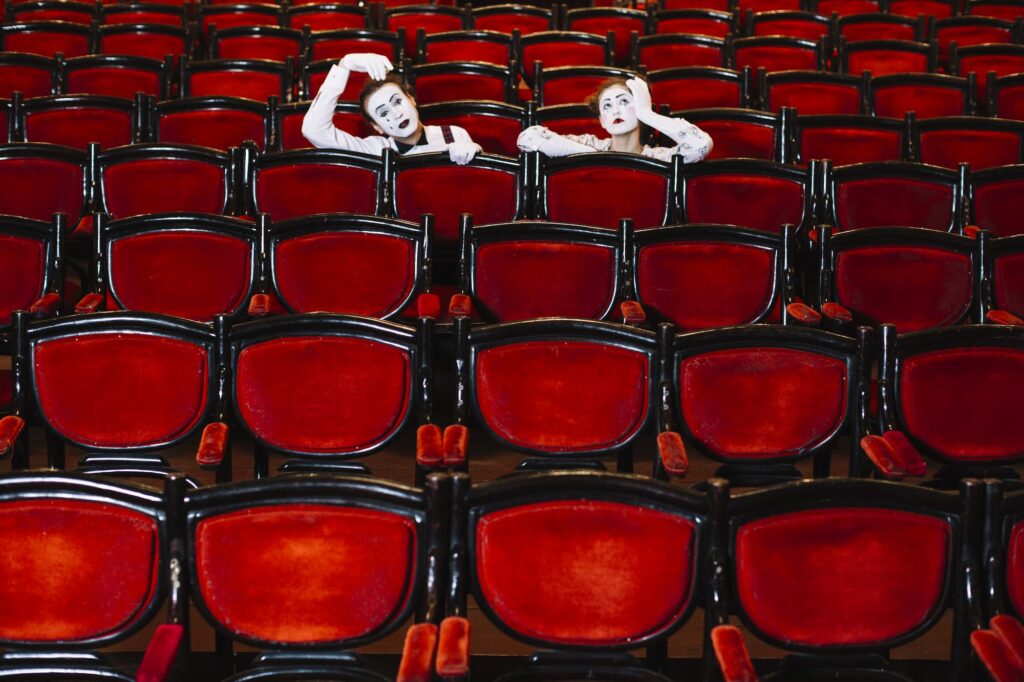The evolution of cinema: from silent films to streaming giants
Cinema, an ever-evolving art form, has come a long way since the silent films of the early 20th century. The journey began with black-and-white films devoid of synchronized sound, where actors conveyed emotions through exaggerated gestures and expressions. Pioneers like Charlie Chaplin and Buster Keaton became iconic figures of this era, captivating audiences with their comedic brilliance.
With the advent of sound in the late 1920s, the film industry underwent a revolution. The Jazz Singer (1927), the first feature-length film with synchronized dialogue, marked the beginning of the “talkies” era. This breakthrough not only enhanced storytelling but also opened new avenues for filmmakers to experiment with sound effects and musical scores.
The Golden Age of Hollywood, spanning the 1930s to the 1950s, witnessed the rise of legendary actors such as Humphrey Bogart, Audrey Hepburn, and Marilyn Monroe. This period was characterized by lavish productions, compelling narratives, and the establishment of major film studios like MGM, Warner Bros., and Paramount.
In recent years, the digital age has transformed cinema once again. The emergence of streaming platforms like Netflix, Amazon Prime, and Disney+ has revolutionized how we consume content. Today, audiences have access to a vast library of films and series at their fingertips, making cinema more accessible than ever before.
The enduring allure of theater: live performance in a digital age
While cinema has evolved significantly, the charm of theater remains timeless. Live theater, with its immediate and intimate connection between actors and audience, offers an unparalleled experience. The roots of theater trace back to ancient Greece, where playwrights like Sophocles and Euripides crafted dramas that explored human nature and societal issues.
The Renaissance period saw the flourishing of theater, particularly in England with William Shakespeare’s timeless works. Shakespeare’s plays, performed at the Globe Theatre, continue to resonate with audiences worldwide, showcasing the enduring power of live performance.
In the 20th century, theater diversified with the rise of musical theater, combining acting, singing, and dancing into a vibrant spectacle. Broadway in New York City and the West End in London became the epicenters of this art form, producing iconic shows like “The Phantom of the Opera,” “Les Misérables,” and “Hamilton.”
Despite the digital revolution, theater has adapted rather than faded. The COVID-19 pandemic, for instance, saw theaters embracing digital mediums, streaming performances to reach audiences at home. This adaptation has highlighted theater’s resilience and its ability to evolve with changing times.
Enhancing your experience: tips for SEO in cinema and theater blogs
For bloggers writing about cinema and theater, reaching a wider audience is crucial. This is where Search Engine Optimization (SEO) plays a vital role. SEO involves optimizing your blog to rank higher on search engine results pages (SERPs), thereby increasing visibility and traffic.
1. Use Relevant Keywords: Incorporate keywords related to your topic naturally throughout your blog. Tools like Google Keyword Planner can help identify popular search terms. For instance, keywords such as “latest cinema releases,” “top Broadway shows,” or “theater reviews” can attract targeted readers.
2. Create Engaging Content: Quality content is key. Write in-depth articles that provide value to your readers. Use engaging headlines and subheadings to break up the text and make it more readable. Additionally, including multimedia elements like images and videos can enhance the user experience.
3. Optimize Meta Descriptions: The meta description is the brief snippet that appears below your blog’s title in search results. Make sure it is compelling and includes relevant keywords. This can significantly impact your click-through rate.

For those seeking professional assistance in optimizing their blog for SEO, consulting experts like Dr. Seo can be incredibly beneficial. Dr. Seo offers tailored strategies to improve your blog’s visibility, ensuring your content reaches the right audience.
Theater has always been a platform for exploring social issues and advocating for change. Contemporary productions are increasingly focused on themes of equality, justice, and representation. Playwrights and directors are challenging traditional narratives and casting practices, creating more inclusive and reflective portrayals of society. Initiatives like color-blind casting and gender-neutral roles are becoming more common, pushing the boundaries of conventional theater.
Educational programs and outreach initiatives are also crucial in fostering diversity in these industries. By providing opportunities and resources for underrepresented groups, the film and theater communities can nurture new talent and ensure that the next generation of creators is more inclusive and representative of global society.
